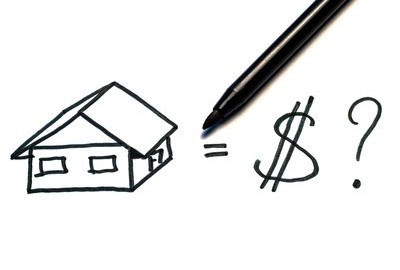Why You Should Build, Not Buy
If you want a new home, you should build not buy. I am not saying the process is easier, but if you are up for the challenge you can get more for your dollar.
Here is why:
1.) When you buy a new spec house (home constructed by a builder before finding a buyer), you pay higher interest because you pay interest during construction and for the time that it takes the home to sell. If the home sells quickly for full price, the builder makes more profit. If it takes several months to sell, the builder makes less and eventually will lose money.
Remember the builder can never take less for a project than the day it has finished; every day it doesn’t sell more interest has been paid.
2.) You pay real-estate commission on the entire sale – 5%-6% ($400,000 x.05 =$20,000), that’s a lot of nice upgrades on a custom build.
3.) The house may or may not meet your needs.
4.) Because of the risky nature of spec building, the builder has to be more conservative on the fit and finish of the house because of the inflated cost of spec money and real-estate commission.
Out of the ashes of the worst recession since the great depression I am seeing a glimmer of hope for new construction. One refreshing trend is houses that made sense for people before the recession are not the same houses that people are looking at today.
Houses of the building boom era were fueled by greed, homebuilders were encouraged to build bigger because homes were being sold by the square foot. The real estate community advised everyone to make the houses bigger and quality was traded for square footage, all on the expectation of huge financial gains when you flipped the house. Many of the houses built from 2004 to 2008 are reminiscent of the poor design and manufacturing the US car industry suffered from in the ‘70’s: big, inefficient, poor to drive and bad to look at.
Homebuyers today are buying or building houses without expecting huge immediate financial gains and are focusing on buying homes that work for their lifestyles and finances.
We are designing for clients who are talking about raising young families or couples nearing retirement who are down-sizing and are ready to simplify their life. The unifying factor is that they are all talking about energy efficiency and green building practices as part of the requirements and program. When people are not looking at their home as a speculative venture but as a home, they make sane decisions about what they are buying or building.
Many spec homes built today are financed with “Hard Money” which is a very expensive way to finance the construction of a project. In lieu of a bank, an individual or group will lend the builder money for an up-front fee of 3-6 points on the entire loan amount at an interest rate between 12% to 21% (source – http://en.wikipedia.org/wiki/Hard_money_loan). Opposed to building with a conventional construction loan where you only pay interest during construction on the amount of money you have drawn on your loan, a hard money loan requires you to pay interest on the full amount of the loan from day one of the project.
There are additional costs associated with buying a spec home; the builder must include in the purchase price the cost of financing until the house sells. For example, if it takes 8 months to design and build the project, the builder needs to include all of the interest it takes to finance the project in the sales price plus he needs to anticipate it may take 6 month or longer to sell the house once it is finished. Finally, there is real-estate commission of 5%-6% on the sale price of the project.
For the convenience of buying a finished house, the consumer could pay $50,000 or more in points, interest, and real estate commission – a hefty amount that could instead go to upgrades on a custom build.
The intention in building a spec house is to build a house as inexpensively as possible that works for the largest number of people as possible. In the spec scenario, the builder is not your advocate. They are working for themselves and their investors. If you have the finances in place and the time to dedicate to building a custom home now is an ideal time. For qualified buyers, banks are lending money at the lowest interest rates in years.
A custom built home will be superior quality and the money you spend on your project will be seen in terms of features and amenities, not finance charges to borrow hard money, real estate commission or holding cost on the projects. Additionally, you are able to control the money and see how and what the money is spent on. If building green and energy efficient is a priority ,you can be party to that process and see what the cost associated with those design features are and make your own decision on how far you will take your project. If you factor the rising cost of energy into your new home equation, you can make decisions about energy efficiency that will continue to save money for as long as you live in your home.
The biggest advantage in building a custom home is that you get a house that is tailored to your needs and wants. In a custom home the builder and your designer/architect are your advocates, they are paid to represent your best interest.
If you love your new home and you don’t find yourself moving every five years, you are able to recognize huge interest savings over the life of your mortgage. People often forget even when you make money on a real estate transaction if you have to get another loan to buy your new home you are starting over on a new 15 to 30 year loan where you pay primarily interest for the first 10 to 15 years of the loan. Chances are if you live in your house for 10 years and then sell and make a profit the new house you buy will be more expensive than your last and the profit may not off set the cost of your new mortgage especially as interest rates increase.
If you are thinking of building a new home, support your local economy and environment by building an environmentally friendly energy efficient home that is reflective of you and your lifestyle. Work with small local builders and tradesman in lieu of large out of town developers that come in and build poor quality track housing and leave when the market softens. Find your own path to the new green home.
Click here to learn more about what it costs to build a house.




Leave a Reply
Want to join the discussion?Feel free to contribute!